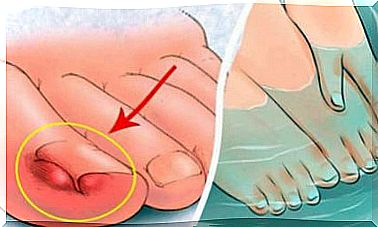How To Decipher The Messages Of Our Skin
Not only do they belong to the aesthetics sector, but there are skin problems with great medical connotations. The ailments that we can suffer at the skin level are varied and it is worth paying attention to what the dermis is telling us. Find out what signals your skin offers you and how to decipher their messages in the following article.
Skin diseases: what are they and what are the symptoms
These are those ailments that affect the skin, they can be many, from acne to skin cancer and are in turn associated with nails, sebum, hair and sweat. Those that derive from sexually transmitted diseases are treated by dermatologists, since they have a direct impact on the skin (such as HIV and syphilis).
The symptoms are also diverse, although common parameters can be determined. Basically, they change the appearance, color, texture and temperature of a particular area. These disorders can manifest as spots, pimples or small bumps sometimes with pus, peeling, hives, ulcers, itching, pain or burning.
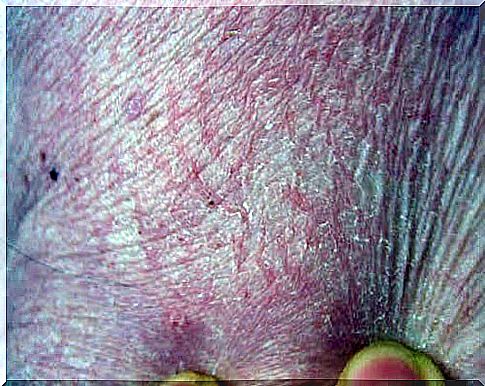
The causes of most of these ailments are still unknown, but stress and excess UV radiation are known to have a very strong influence on them. Also diet, bad habits and external agents such as cleaning products or environmental smog can affect the health of the skin. It is necessary to take into account the signs and go to the consultation with the dermatologist as soon as possible.
On a psychological level, anxiety and fears also take their toll on the dermis, the outermost layer of our body. If the person feels attacked or threatened by any agent, then they will respond with a natural barrier.
When the skin is very sensitive it may be because the individual is also sensitive, when it is rough it is because it is a tough person, when it is red, there is excitement and when it sweats too much, it shows insecurity.
Pay attention to changes in skin colors, because for example, if it is too pale it can show tiredness or anemia; if it is bluish in color it is due to lack of oxygen in the blood and if it is yellowish it is due to excess bilirubin.
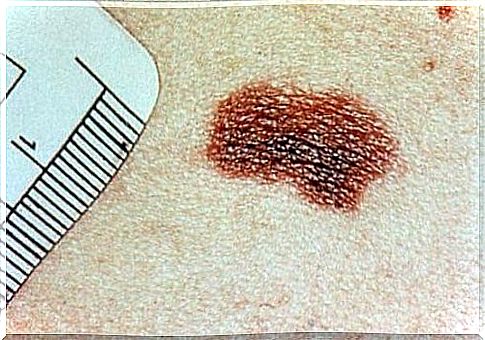
Skin signs to watch out for
It is necessary to carry out periodic check-ups to rule out any type of disease and also take into account some symptoms such as those detailed below.
Too deep wrinkles
Not only when it comes to aesthetics, wrinkles are bad. This may be related to an increased risk of bone fractures.
Especially in postmenopausal women, those with more wrinkles on the neck and face were prone to lower bone density in the heels, spine, and hips. This is due to a lack of collagen, which is not only present in the skin, but also in the bones.
“Butterfly wings” rash
It is a butterfly-shaped rash, which appears on the face and is the first symptom of lupus disease. Do not rush into the diagnosis, because it can also be due to dermatitis or rosacea, by contact with any product or clothing. Clinical tests should be done so that it can be determined what it is.
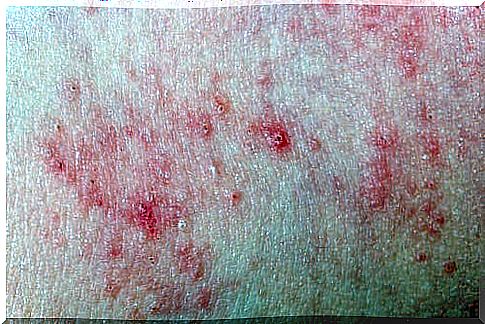
Corns on the palms of the hands
They are a condition of the skin where it becomes thicker and velvety, white in color and with pronounced folds. It may or may not be due to some repetitive task. Around 90% of the cases in which there are no activities that can generate them are associated with cancer.
Velvety spots
Velvety patches or patches on the neck or armpits may be due to diabetes. This condition is scientifically called acanthosis nigricans and it could also be benign and due to obesity. Although it does not hurt to carry out a study of the level of sugar in the blood.
Rosettes on the wrists
The itching and purple rosettes in this area are known as lichen planus and can also appear on the ankles, mouth, neck, legs, lower back, and genitals. Its cause is not known but there is a high chance that it is due to hepatitis C.
Rough, white spots
These whitish or light flesh-colored patches on the back are orange-peel-shaped lesions, oval at one end and pointed at the other. They are signs of a rare, genetic disease called tuberous sclerosis, which causes benign tumors in several vital organs, such as the brain.
Very dull and dry skin
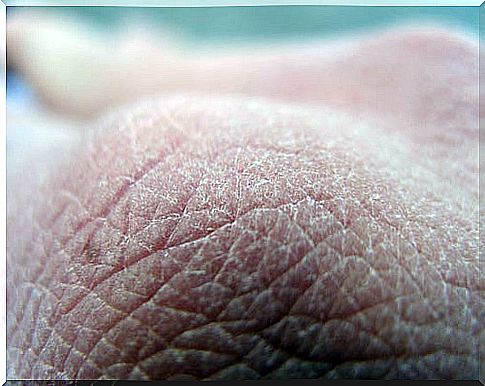
This can mean a deficiency of omega 3 fatty acids, which serve to improve brain function, reduce inflammation and the possibility of diseases such as arthritis, arrhythmias and cancer.
This deficiency also causes a delay in the natural exfoliation cycle of the skin, which results in dryness or dandruff. If there are other symptoms such as unexplained weight loss, shortness of breath, swelling and pain in the lymph nodes or fatigue, it may be associated with cancer.


